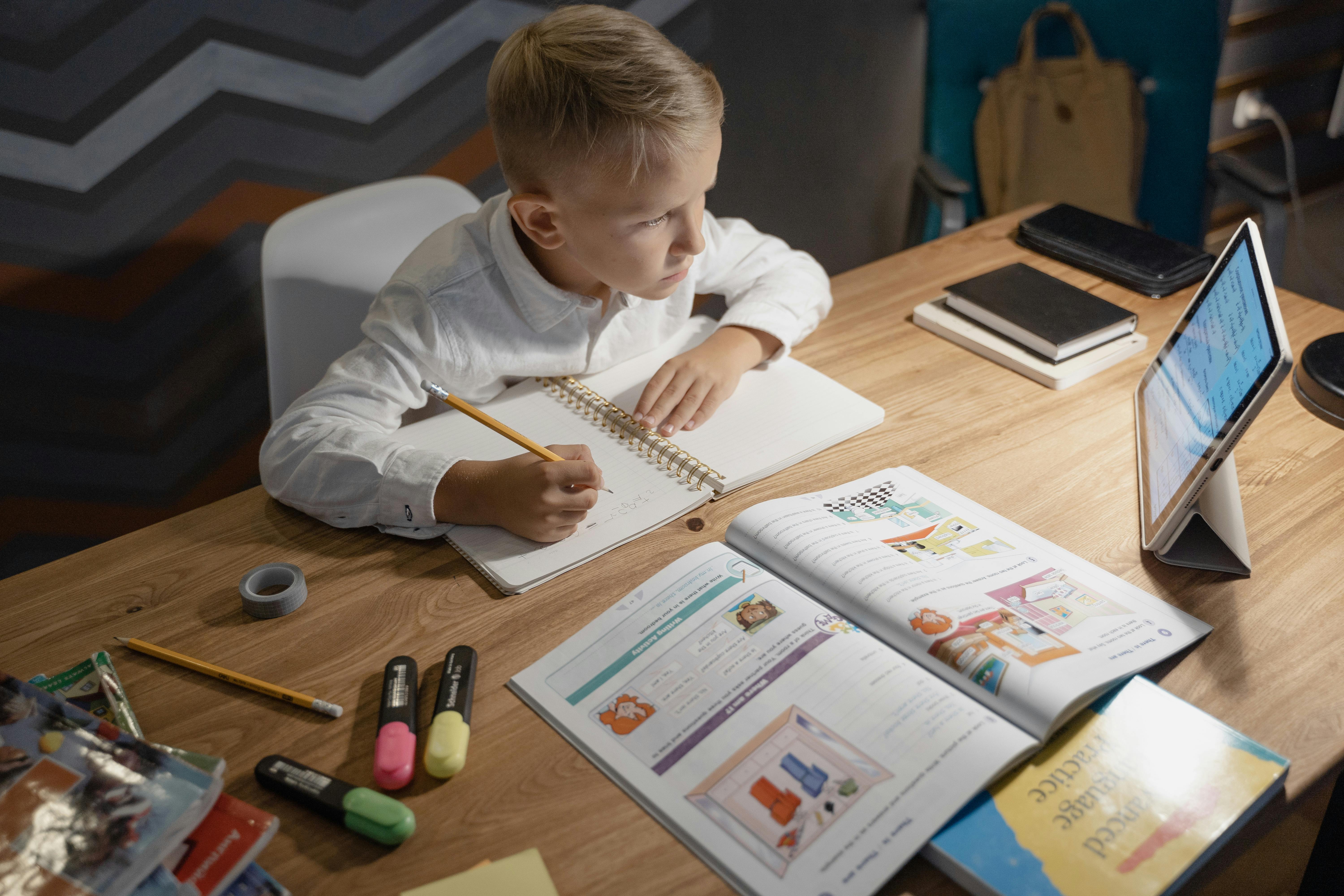Unlocking the Potential: Tips to Enhance Kids’ Learning Effectively
Every child is unique, possessing their own set of interests, strengths, and learning styles. Nurturing a positive and effective learning environment is crucial to helping kids develop a love for learning and reach their full potential. Here are some tips to enhance kids’ learning effectively!

Create a Stimulating Environment
Colorful and Organized Spaces
Design a study area that is visually appealing and well-organized. Incorporate bright colors, educational posters, and storage solutions to make the space inviting and conducive to learning.
Minimize Distractions
Reduce external distractions by keeping the study area away from noisy spaces. Turn off electronic devices or limit their use during study sessions to help maintain focus.
What’s a simple tweak you’ve made to your child’s study space that seems to work wonders?
Encourage Active Participation
Hands-On Learning
Incorporate hands-on activities into lessons. For example, use building blocks for math concepts or conduct simple science experiments. Engaging the senses through touch and movement enhances understanding and retention.
Interactive Learning Tools
Explore educational apps, games, and interactive online resources. These tools can make learning more enjoyable and provide additional opportunities for practice.
What’s a hands-on activity or educational game your child loves?
Establish Consistent Routines
Structured Schedule
Set a consistent daily routine that includes dedicated study time. Having predictable schedules helps children feel secure and understand expectations.
Breaks and Rewards
Break study sessions into manageable chunks, incorporating short breaks. Offer small rewards or praise for completing tasks to reinforce positive behavior.
Foster a Love for Reading
Create a Reading Ritual
Establish a routine for reading together. Whether it’s a bedtime story or a weekend reading session, make it an enjoyable and bonding experience.
Diverse Reading Material
Provide a variety of reading materials based on their interests. This could include fiction, non-fiction, comics, or magazines. A diverse selection encourages a love for reading.
Any favorite children’s books that are a hit in your household?
Tailor Learning to Individual Needs
Identify Learning Styles
Pay attention to how your child learns best—whether through visuals, auditory cues, or hands-on experiences. Tailor activities and lessons to match their preferred learning style.
Adapt to Pace
Allow flexibility in learning pace. Some children may grasp concepts quickly, while others may need additional time. Adjust the learning approach accordingly.
How have you discovered your child learns best?
Cultivate Curiosity and Inquiry
Encourage Questions
Foster a curious mindset by encouraging questions. When children express interest in a topic, explore it together or guide them to relevant resources.
Connect Learning to Real Life
Relate lessons to real-life situations. Understanding the practical applications of what they are learning can enhance comprehension and enthusiasm.
Utilize Positive Reinforcement
Celebrate Achievements
Acknowledge and celebrate both small and big achievements. Positive reinforcement boosts confidence and motivates continued effort.
Constructive Feedback
Provide constructive feedback that focuses on effort and improvement. Highlighting progress fosters a growth mindset and resilience.
Collaborate with Teachers
Open Communication
Maintain open communication with teachers. Stay informed about your child’s progress, strengths, and areas that may need extra attention.
Participate in School Activities
Attend parent-teacher conferences, school events, and activities. Building a strong partnership with teachers enhances the overall learning experience.
Emphasize Health and Well-being
Adequate Sleep
Ensure your child gets sufficient sleep, as it directly impacts concentration and cognitive function.
Balanced Nutrition
Provide a balanced diet rich in nutrients. Proper nutrition contributes to overall well-being and supports optimal brain function.
Make Learning Fun
Gamify Learning
Turn learning into games or challenges. Educational board games, quizzes, and creative activities can make the learning process enjoyable.
Outdoor Exploration
Take learning outside by exploring nature, visiting museums, or engaging in outdoor activities. A change in environment can spark curiosity.
What’s a fun educational activity your family has tried?



